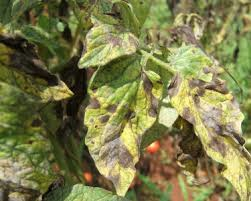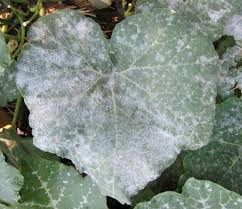 One thing you can count on as a gardener this time of the year is plant diseases. I know of no gardener who does not experience at least some form of plant disease every garden season.
One thing you can count on as a gardener this time of the year is plant diseases. I know of no gardener who does not experience at least some form of plant disease every garden season.
Plants, like humans are susceptible to adverse environmental conditions, airborne viruses, weak immune conditions, etc. The healthier the soil and plant, the less likely it will be infected, but 100% avoidance, in my experience, is not likely. Indoor growers have a better chance because they can control the growing environment better. Outdoor growers don’t have that ability.
Disease comes in two forms: Fungal and bacterial.
 So how do you minimize the chance of disease?
So how do you minimize the chance of disease?
Start with the soil. Healthy soil, like a healthy human body, creates a strong immune system in the plant. Give the plant the ability to fight back against disease by providing good nutrition for your soil. A recent study of the entire microbiome of a grapevine showed that the microbes found in the soil were also found in the grapes, leaves, and flowers. These microbes derived from the soil were proven to play a significant role in the disease resistance, stress tolerance, and productivity of the plant.
There are a number of Mapproaches to improving your soil.
The Soil Food Web method advocates feeding the soil with good quality compost and compost teas. This longterm solution builds soil health by letting nature do most of the work. Compost and compost teas create a healthy environment for good bacteria and fungi to break down organic matter that can then be utilized by the plants.
Most gardeners head for the fertilizers and amendments right away, many without getting a good soil test first. If you’re going to correct soil deficiencies with amendments, getting a soil test done is key. Adding the appropriate organic amendments at the right time can offer quicker soil improvements, but can also be more costly than .
Both methods are valid and the goal is the same…to make sure the soil you’re growing in has the right nutrients to produce healthy plants.
There are 17 essential nutrients that play a role in plant health.
- Nitrogen
- Phosphorus
- Potassium
- Magnesium
- Sulfur
- Calcium
- Boron
- Chlorine
- Manganese
- Iron
- Nickel
- Copper
- Zinc
- Molybdenum
- Hydrogen
- Carbon
- Oxygen
The Law of the Minimum states that, if one or more nutrients are lacking in the soil, crop yields will be reduced, even though an adequate amount of other elements is available.
Non-organic gardeners tend to focus on chemical and non biological input with a hit and miss effectiveness. This approach is a short-term fix, if anything, and needs regular input to succeed. It also causes soil and water contamination through runoff and leaching.
Organic gardeners look to a combination of compost, compost teas, minerals, and slow release organic fertilizers, which offer a more complete, longer-term way of improving soil health. Of these, healthy compost will provide the best long-term benefit. Organic amendments work slower and create long-term soil health reducing the need for nutrient input over time.
Good environmental conditions for the specific plant variety are also important. This includes good ventilation and appropriate placement of the plant in its preferred type of growing environment.
Good soil health is where to begin to prevent plant disease, but sometimes disease just blows in on the wind or falls with the rain, and you have to deal with it. For that purpose there are organic treatments available to help out.
For Common Fungal Disease, remedies include:
- Bacillus subtilis (Serenade) – a form of bacteria that attacks fungi
- Sulfur – prevents fungal spores from developing
- Copper Soap – kills fungi and bacteria
- Neem Oil – prevents and controls fungi and bacteria
For Common Bacterial Diseases, remedies include:
- Neem Oil
- Copper Soap
- Horticultural Oils
Things you can do now to improve soil health for the long term:
- Start building a compost pile
- Spray compost teas regularly
- Plant cover crops where possible
Plan ahead for improving your soil’s health and continue working on soil health every season. Just like a human body, the earth you grow in needs replenishment regularly, whether it be in the form of good compost, or with the input of organic amendments. Test your soil regularly. I like to do it yearly. Do these things, and your soil will be healthy, which in turn will minimize plant diseases.

Penelope Smith says
I want to start growing a garden in my backyard. I need to make sure that the soil is in good shape for growing the plants I want. So, it is good for me to know that I will need to have a small amount of sulfur in my soil to grow things well.